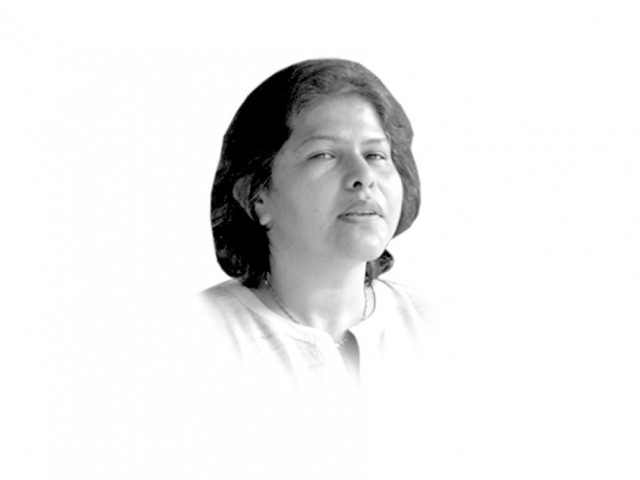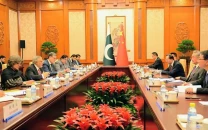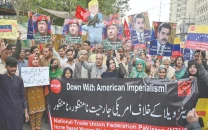Rationalising jihadi discourse
A visit to any elite university shows how increasingly radicalised is Pakistan’s affluent, exposed and educated youth.

Hizbut Tahrir’s penetration in the military and other segments of society indicates the acceptance of radical ideology amongst the upper-middle and middle classes which are targeted by entities like Lashkar-e-Taiba (LeT) and Al-Huda as well. A visit to any of the elite universities will show how increasingly radicalised is Pakistan’s affluent, exposed and educated youth.
In these conditions, one wonders if authors like Humaira Iqtidar may contribute to further radicalisation by presenting the militant narrative as a rationalised discourse. Her book based on interviews with women of the Jamaat-e-Islami (JI) and Jamaatud Dawa (JuD) is an anthropological presentation of an intensely political matter, and this is part of the problem with her narrative.
Iqtidar uses the formula of certain scholars like Talal Asad in treating culture as a fixed variable in which religion, in turn, is a given. While searching for explanations to the presence of militant structures, the author of Secularising Islamists finds modern rationality in both the JI and the JuD. In doing so, she completely confuses modernity with secularisation and proffers the argument that the JI and JuD may oppose secularism but will end up secularising society. Furthermore, secularisation is the process of bringing religion in the public space. The contestation between the JI and JuD is seen as feeding the process of secularisation in the country.
Based on conversations with members of these two entities, the author concludes the behaviour of these people as expressions of freethinking and hence rationality. Strangely, Iqtidar’s ethnography does not include laments of JuD mothers who have unwillingly or half willingly lost their sons to jihad. Where does the story of that mother fit into her study who still hopes her son might be alive because the JuD did not return his dead body or clothes? Obviously, the author confuses the power of making a choice with the absence or presence of an environment that constraints free choice. Freedom of thought is seriously constrained when laws, even man-made, seem to have divine sanction. It is very difficult to challenge religious norms or even argue about the possibility of variation in interpreting holy text.
Conditions become even more problematic when states like Pakistan and Saudi Arabia mix religion with politics or use religion to legitimise political decisions. This is akin to standing in a race ahead of the starting line. The author believes that the JuD espouses pluralism, the evidence being greater tolerance of Shias. But other organisations have done similar things like Jaish-e-Mohammed opting to deviate from Maulana Fazlur Rehman Khalil’s Hizbul Mujahideen on the issue of sectarian violence because the state wanted it to.
Nor does pursuing non-religious activities like relief and welfare by militant outfits or use of modern technology increase the space for secularisation in a society. Non-militant acts are mere tools to attract people or hide the real objective, which is to expand globally. Looking at some of the recent work produced by British academia, which now claims to understand Islam, the Islamists seem successful. Their power has grown even more due to consistent help from the Pakistani state, an issue that the author does not discuss at length. With tremendous state patronage, the question of free will does not really arise.
Anthropologists risk getting entrapped emotionally by their subjects, which has happened to Iqtidar as well. Thus, she fails to discuss at length the myth of jihad and what it does to a society. One wonders what this discourse means for the youth already on the path of radicalisation.
Published in The Express Tribune, August 14th, 2011.



















COMMENTS
Comments are moderated and generally will be posted if they are on-topic and not abusive.
For more information, please see our Comments FAQ